Probiotic
How to submit an article:
- Registered users can submit any published journal article that has a unique DOI (Digital Object Identifier) name or link to Research Hub.
- For example, you can paste the full DOI link:
https://doi.org/10.1109/5.771073or just the DOI name:10.1109/5.771073into the field above and click submit. - The person who is first to submit a valid article to Research Hub will forever be credited for it, and every article submission earns you +6 Research Points.
Related Topics
Published research studies are articles that present the findings of original research that has undergone a peer-review process and has been made publicly available in scholarly journals, books or other media.

Anti-Menopausal Effect of Soybean Germ Extract and Lactobacillus gasseri in the Ovariectomized Rat Model
2023 Oct 23 Nutrients Lee SH, Lim TJ, Yun EJ, Kim KH, Lim S
Animal Study Experimental Study Menopause Soybean BacillusA combination of soybean germ extract and a probiotic significantly improved menopause-related conditions and mood in an ovariectomized rat model.
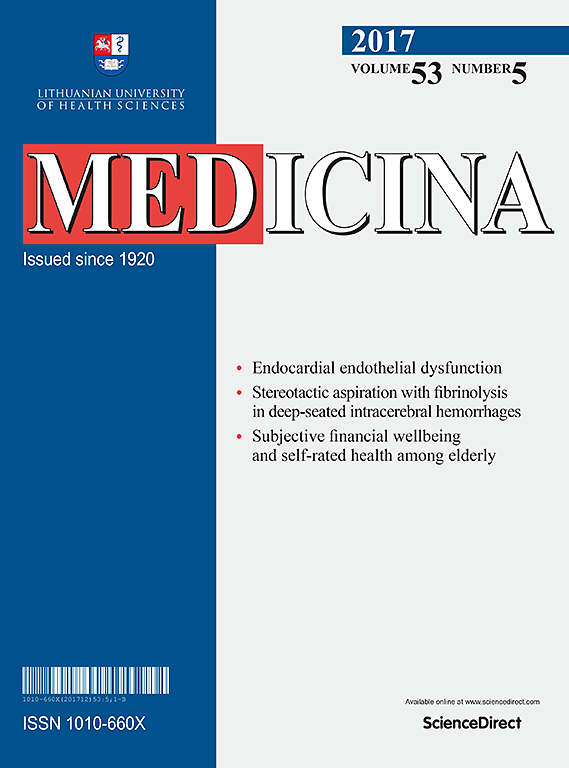
Efficacy of Topical Intervention for Recurrent Aphthous Stomatitis: A Network Meta-Analysis
2022 Jun 07 Medicina Liu H, Tan L, Fu G, Chen L, Tan H
The study recommends the use of laser as a short-term intervention during the exacerbation phase and probiotics as a long-term intervention during both exacerbation and remission phases of recurrent aphthous stomatitis.
Network Pharmacology Meta-Analysis Mouth Ulcers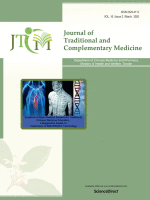
Gut microbiota and Autism Spectrum Disorder: From pathogenesis to potential therapeutic perspectives
2022 Mar Journal of Traditional and Complementary Medicine Mehra A, Arora G, Sahni G, Kaur M, Singh H, Singh B, et al.
We also reviewed new hopes in herbal remedies which can mitigate autism either via gut brain axis or directly having neuroprotective or antioxidant action.
Review Article
Dietary supplements for treatment of endometriosis: A review
2022 Mar 14 Acta Biomedica Yalçın Bahat P, Ayhan I, Üreyen Özdemir E, İnceboz Ümit, Oral E
Review ArticleDietary supplements are found to be a promising complementary treatment for endometriosis, thanks to their anti-inflammatory, anti-oxidant, and immune modulatory characteristics.

Efficacy and Safety of Probiotics Combined With Traditional Chinese Medicine for Ulcerative Colitis: A Systematic Review and Meta-Analysis
2022 Mar 07 Frontiers in Pharmacology Hu Y, Ye Z, She Y, Li L, Wu M, Qin K, et al.
Meta-Analysis Systematic Review Probiotic Crohn's DiseaseProbiotics combined with traditional Chinese medicine have shown higher rates of efficiency in the treatment of ulcerative colitis than when each is used individually.
Research insights are moderated by the Research Hub team and offer an at-a-glance overview of interesting research findings.

2023 Nutrients
A combination of soybean germ extract and a probiotic significantly improved menopause-related conditions and mood in an ovariectomized rat model.
Animal Study Bacillus Menopause Soybean
Anti-Menopausal Effect of Soybean Germ Extract and Lactobacillus gasseri in the Ovariectomized Rat Model
Lee SH, Lim TJ, Yun EJ, Kim KH, Lim S

2022 Acta Biomedica
Dietary supplements are found to be a promising complementary treatment for endometriosis, thanks to their anti-inflammatory, anti-oxidant, and immune modulatory characteristics.
Review Article
Dietary supplements for treatment of endometriosis: A review
Yalçın Bahat P, Ayhan I, Üreyen Özdemir E, İnceboz Ümit, Oral E

2022 Frontiers in Pharmacology
Probiotics combined with traditional Chinese medicine have shown higher rates of efficiency in the treatment of ulcerative colitis than when each is used individually.
Meta-Analysis Crohn's Disease
Efficacy and Safety of Probiotics Combined With Traditional Chinese Medicine for Ulcerative Colitis: A Systematic Review and Meta-Analysis
Hu Y, Ye Z, She Y, Li L, Wu M, Qin K, et al.

2021 Nutrients
Consuming soymilk-honey fermented with a specific type of probiotic significantly reduces osteocalcin levels, which may impact bone health in postmenopausal women.
Clinical Study Honey Menopause Osteoporosis Soy Milk Soybean
Effect of Fermented Soymilk-Honey from Different Probiotics on Osteocalcin Level in Menopausal Women
Desfita S, Sari W, Yusmarini Y, Pato U, Zakłos-Szyda M, Budryn G

2020 Molecules
Probiotic-enriched mung and adzuki bean sprouts demonstrate increased antioxidant potential and exhibit cytostatic and cytotoxic effects on human stomach cancer cells.
Experimental Study Adzuki Bean Mung Bean Stomach Cancer
Potentially Bioaccessible Phenolics from Mung Bean and Adzuki Bean Sprouts Enriched with Probiotic—Antioxidant Properties and Effect on the Motility and Survival of AGS Human Gastric Carcinoma Cells
Świeca M, Herok A, Piwowarczyk K, Sikora M, Ostanek P, Gawlik-Dziki U, et al.
Review Articles
Review articles summarise and critically evaluate the current state of research on a specific topic or field by synthesising multiple primary research studies.

Gut microbiota and Autism Spectrum Disorder: From pathogenesis to potential therapeutic perspectives
2022 Mar Journal of Traditional and Complementary Medicine Mehra A, Arora G, Sahni G, Kaur M, Singh H, Singh B, et al.
We also reviewed new hopes in herbal remedies which can mitigate autism either via gut brain axis or directly having neuroprotective or antioxidant action.
Review Article
Dietary supplements for treatment of endometriosis: A review
2022 Mar 14 Acta Biomedica Yalçın Bahat P, Ayhan I, Üreyen Özdemir E, İnceboz Ümit, Oral E
Review ArticleDietary supplements are found to be a promising complementary treatment for endometriosis, thanks to their anti-inflammatory, anti-oxidant, and immune modulatory characteristics.

Efficacy and Safety of Probiotics Combined With Traditional Chinese Medicine for Ulcerative Colitis: A Systematic Review and Meta-Analysis
2022 Mar 07 Frontiers in Pharmacology Hu Y, Ye Z, She Y, Li L, Wu M, Qin K, et al.
Meta-Analysis Systematic Review Probiotic Crohn's DiseaseProbiotics combined with traditional Chinese medicine have shown higher rates of efficiency in the treatment of ulcerative colitis than when each is used individually.
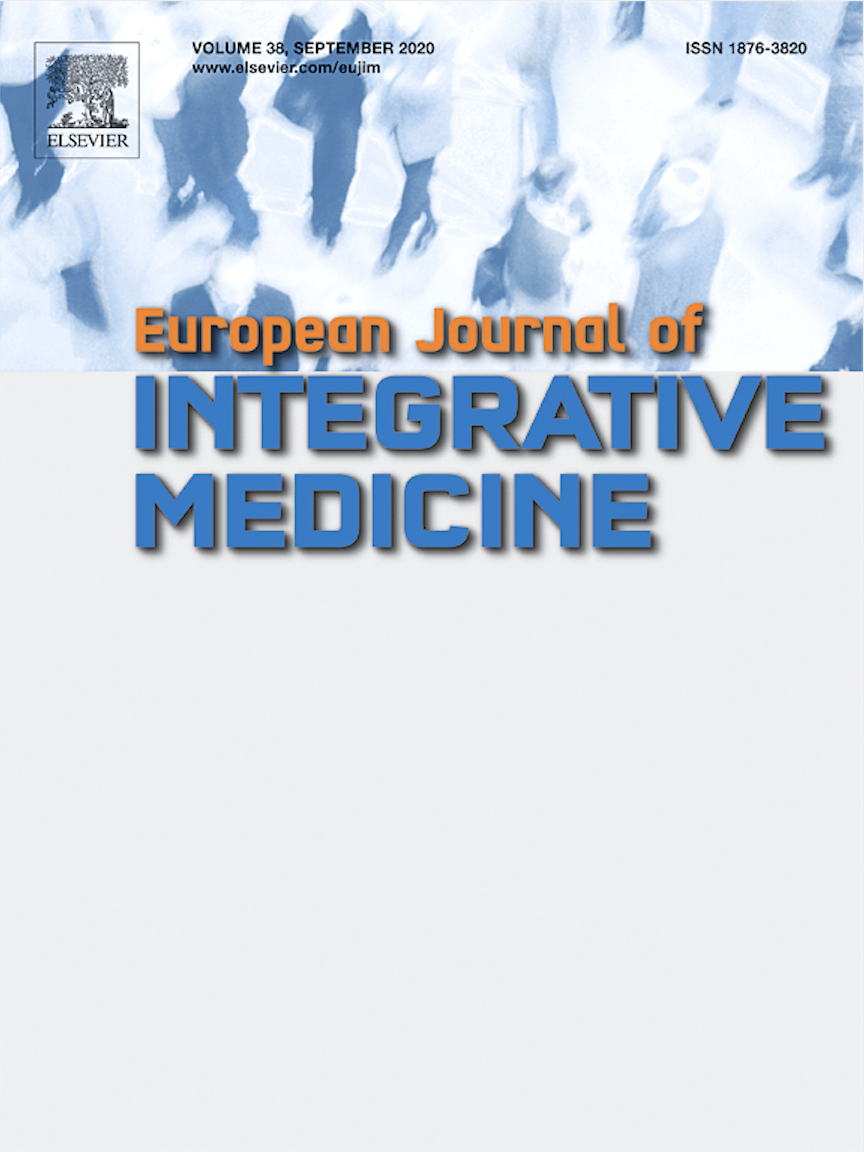
Chinese herbal medicine versus probiotics for irritable bowel syndrome: A systematic review and meta-analysis of randomized controlled trials
2020 Sep European Journal of Integrative Medicine Bu FL, Chen RL, Lin ZY, Cao HJ, Robinson N, Liang N, et al.
Very low quality evidence suggests that CHM may be better than probiotics when the duration of treatment lasted more than 4 weeks and soothing liver and invigorating spleen (SLIS) formulae may be better than triple Bifidobacterium preparations for improving the overall symptoms of IBS-Diarrhea (IBS-D); and some CHM may be more advantageous for reducing relapse rates of IBS-D than probiotic
Systematic Review Meta-Analysis Irritable Bowel Syndrome Chinese Herbal Medicine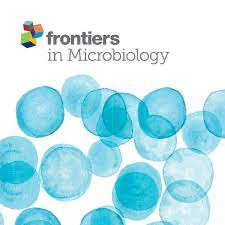
The Gut Microbiome as a Major Regulator of the Gut-Skin Axis
2018 Jul 10 Frontiers in Microbiology Salem Iman, Ramser Amy, Isham Nancy, Ghannoum Mahmoud A.
Basic science research and clinical studies have demonstrated the gut microbiome’s contribution to host homeostasis, allostasis, and the pathogenesis of disease. Through complex immune mechanisms, the influence of the gut microbiome extends to involve distant organ systems including the skin. With intentional modulation of the microbiome, probiotics, prebiotics, and synbiotics have proven beneficial in the prevention and/or treatment of inflammatory skin diseases including acne vulgaris, AD, and psoriasis.
Review Article MicrobiomeClinical Trials
Clinical trials are research studies that involve people and are conducted to evaluate the safety and efficacy of new treatments or interventions, such as drugs, medical devices, or behavioural therapies.
Study Protocols
Published study protocols are detailed plans that outline the objectives, methodology, statistical analyses, and organisation of a research study that have been made publicly available for others to review and use as a reference.
Presentation Slides

Animal Study
A combination of soybean germ extract and a probiotic significantly improved menopause-related conditions and mood in an ovariectomized rat model.
Lee SH, Lim TJ, Yun EJ, Kim KH, Lim S

Review Article
Dietary supplements are found to be a promising complementary treatment for endometriosis, thanks to their anti-inflammatory, anti-oxidant, and immune modulatory characteristics.
Yalçın Bahat P, Ayhan I, Üreyen Özdemir E, İnceboz Ümit, Oral E

Meta-Analysis
Probiotics combined with traditional Chinese medicine have shown higher rates of efficiency in the treatment of ulcerative colitis than when each is used individually.
Hu Y, Ye Z, She Y, Li L, Wu M, Qin K, Li Y, He H, Hu Z, Yang M, Lu F, Ye Q

Clinical Study
Consuming soymilk-honey fermented with a specific type of probiotic significantly reduces osteocalcin levels, which may impact bone health in postmenopausal women.
Desfita S, Sari W, Yusmarini Y, Pato U, Zakłos-Szyda M, Budryn G

Experimental Study
Probiotic-enriched mung and adzuki bean sprouts demonstrate increased antioxidant potential and exhibit cytostatic and cytotoxic effects on human stomach cancer cells.
Świeca M, Herok A, Piwowarczyk K, Sikora M, Ostanek P, Gawlik-Dziki U, Kapusta I, Czyż J

Experimental Study
Unpasteurised milk and dairy products intake could potentially alter gut microbiome composition which may influence psychological functioning.
Butler MI, Bastiaanssen TFS, Long-Smith C, Berding K, Morkl S, Cusack AM, Strain C, Busca K, Porteous-Allen P, Claesson MJ, Stanton C, Cryan JF, Allen D, Dinan TG

Experimental Study
Lactic acid bacteria strains isolated from indigenous Bangladeshi raw milk demonstrate strong probiotic potential and antimicrobial activity against various pathogens.
Reuben RC, Roy PC, Sarkar SL, Rubayet Ul Alam ASM, Jahid IK
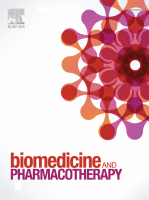
Experimental Study
Goji berry polysaccharide can enhance intestinal microbiota and beneficial bacteria levels, whilst modulating the innate immune response.
Zhu W, Zhou S, Liu J, McLean RJC, Chu W

Experimental Study
Pomegranate extracts and a probiotic strain have shown a combined effect in reducing fat content and the development of fat cells, potentially useful in preventing and treating obesity.
Sorrenti V, Randazzo CL, Caggia C, Ballistreri G, Romeo FV, Fabroni S, Timpanaro N, Raffaele M, Vanella L
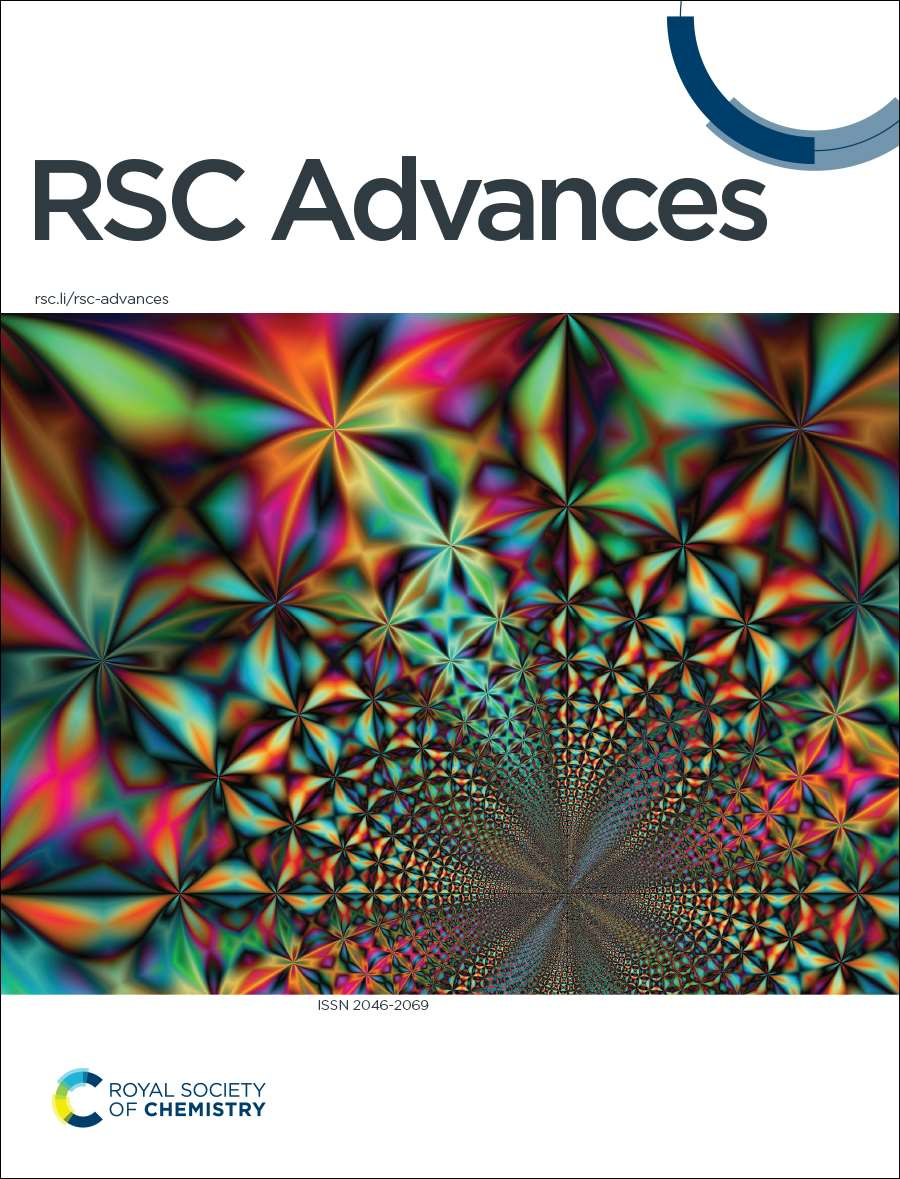
Animal Study
Ripened Pu-erh tea extract demonstrates a stronger anti-diabetic impact than raw Pu-erh tea extract, potentially due to the fermentation process and its probiotic benefits to certain gut bacteria.
Qianzhi Ding, Wei Zheng, Bowei Zhang, Xiaojuan Chen, Jie Zhang, Xu Pang, Yong Zhang, Dexian Jia, Surui Pei Yuesheng Dong Baiping Ma
Executive Summary
Write an executive summary in the form of a blog article on the topic of "Research into Chinese medicine treatment for Probiotic" summarising the research below and using language that can be easily understood by patients and avoiding medical jargon using a professional and caring tone of voice.
Write an executive summary in the form of a blog article on the topic of "Researched Chinese medicine treatments for Probiotic" summarising the research below in an objective and easy to understand way, and using language that can be easily understood by patients. Group the article into Chinese medicine treatments first, followed by nutrition and other treatments. Avoid using medical jargon and use a professional and caring tone of voice.
Write me a concise but easy to understand executive summary on the topic of "Chinese medicine treatments for Probiotic" based on the following research that I will give you. Your summary should be 2 paragraphs long in Australian English spelling and include references to the studies.
A Animal Study published in 2023 in the journal Nutrients found that A combination of soybean germ extract and a probiotic significantly improved menopause-related conditions and mood in an ovariectomized rat model. The study employed an ovariectomized rat model to understand the effects of a combination of soybean germ extract containing 30% isoflavone and a probiotic. The methodology included assessing the effects of this combination on several health markers including body weight, estrogen markers, uterine and bone health, vascular markers, and neurotransmitter levels in these rats. Once implemented, the combination of soybean germ extract and the probiotic showcased significant improvement in body weight and uterine and bone health of the rats. There were also noticeable effects on the lipid profile, liver function, and vascular markers. Most interestingly, the combination had a positive impact on the levels of serotonin and norepinephrine, indicating potential mood-enhancing effects, which are crucial in managing symptoms post-menopause. This essentially shows the potential of a dietary approach towards menopausal management, especially given the observed benefits without the side effects typically associated with hormone replacement therapy.
A Review Article published in 2022 in the journal Acta Biomedica found that Dietary supplements are found to be a promising complementary treatment for endometriosis, thanks to their anti-inflammatory, anti-oxidant, and immune modulatory characteristics. The researchers conducted a comprehensive literature review and synthesized the effects of various dietary supplements. The list of supplements includes vitamin D, zinc, magnesium, omega 3, propolis, quercetin, curcumin, N-acetylcysteine, probiotics, resveratrol, alpha lipoic acid, vitamin C, vitamin E, selenium, and epigallocatechin-3-gallate. These were studied due to their known anti-inflammatory, anti-oxidant, anti-proliferative, and immune modulatory characteristics. In terms of discussion on the results, the findings from the comprehensive literature review, encompassing in vitro, animal and human studies, show that there might be significant potential for dietary supplements as a complementary treatment to conventional therapy for endometriosis. Each supplement displayed attributes contributing to the mitigation of endometriosis symptoms, whether it was through anti-inflammatory means, antioxidant effects, immune modulation or their anti-proliferative properties. Despite variations between different kinds of supplements, the overall consensus indicates these function as a helpful add-on in managing the disease.
A Meta-Analysis published in 2022 in the journal Frontiers in Pharmacology found that Probiotics combined with traditional Chinese medicine have shown higher rates of efficiency in the treatment of ulcerative colitis than when each is used individually. For the methodology, the researchers utilized a comprehensive search of multiple databases such as Pubmed, EMBASE, Cochrane library, China Academic Journals, Wan-fang database, Chinese biomedical literature service system, and Chinese Science and Technology Journals. They designed subgroup analysis in alignment with distinct control drugs, treatment lengths, and types of probiotics, using Review Manager software for statistical analysis. In discussing the results, the study analyzed fourteen original studies containing over a thousand patients. It concluded that the combination of probiotics with traditional Chinese medicine was more effective than 5-aminosalicylic acid, probiotics, or traditional Chinese medicine used individually. Further, this combination was found to suppress intestinal inflammation, diminish the frequency of recurrence, and lower the occurrence of adverse events. The results indicated that a mixture of different probiotics was more effective than a single strain.
A Clinical Study published in 2021 in the journal Nutrients found that Consuming soymilk-honey fermented with a specific type of probiotic significantly reduces osteocalcin levels, which may impact bone health in postmenopausal women. The researchers conducted a 90-day pre-post quasi-experimental study with control design on 54 postmenopausal women who were divided into three groups. The first group consumed regular soymilk, the second group consumed soymilk-honey fermented with a specific sub species of probiotics, and the third group consumed soymilk-honey fermented with a different type of probiotics. Each participant consumed 100 mL of their respective drink per day for 90 days. Measurements of blood serum osteocalcin were taken at the start and end of the study, alongside assessments of each participant's overall health status, including total cholesterol, blood glucose, and uric acid levels. In terms of results, it was observed that the group consuming the soymilk-honey fermented with the particular probiotic showed a significant decrease in their osteocalcin levels after the 90-day period. This indicates that this specific fermented soymilk-honey beverage might have a positive impact on bone health in postmenopausal women.
A Experimental Study published in 2020 in the journal Molecules found that Probiotic-enriched mung and adzuki bean sprouts demonstrate increased antioxidant potential and exhibit cytostatic and cytotoxic effects on human stomach cancer cells. The study utilized mung bean sprouts (MBS) and adzuki bean sprouts (ABS), enriched with probiotic strain 299v, and their gastric digests were tested on human stomach cancer cells, AGS. Differentiation was shown through ABS containing quercetin and kaempferol derivatives while MBS featured kaempferol and apigenin derivatives, each displaying a higher antioxidant potential compared to controls. The viability of AGS reduced notably with low concentrations of ABS extracts, displaying inhibitive action which pointed to their cytostatic effects. In discussing the results, it is noticed that the sprouts showcased dose-independent cytostatic effects. However, ABS extracts were found to be more effective in reducing the proliferation of AGS, compared to MBS. Notably, the ABS extracts exerted about 70% inhibitions, elucidating their strong inhibitive power. Concurrently, the phytochemicals from these probiotic-enriched sprouts were observed to reduce the associated activity significantly. Observations of increased vinculin level, apoptotic shape of cell nuclei, alongside decreased cell motility and proliferation provide evidence that these extracts exhibited not only cytostatic but also cytotoxic activity.
A Experimental Study published in 2020 in the journal Nutrients found that Unpasteurised milk and dairy products intake could potentially alter gut microbiome composition which may influence psychological functioning. In this observational study, the impact of dietary change involving unpasteurized dairy consumption on gut microbiota and psychological state was observed among participants of a 12-week residential cookery course on an organic farm. Twenty-four participants, who primarily consumed food from the farm including unpasteurised milk and dairy products, provided faecal samples at the beginning and end of the course. Concurrently, they completed self-report questionnaires touching on mood, anxiety, and sleep aspects and nutrient intake was monitored via a food frequency questionnaire. Gut microbiota analysis was carried out using 16S rRNA gene sequencing and measurement of faecal short chain fatty acids. Post-course, there was a significant growth in the relative abundance of a specific bacterial genus in the gut, associated with unpasteurised milk and dairy product intake. Furthermore, an increase in a particular faecal short chain fatty acid, valerate, was observed together with an elevation in the functional richness of the microbiome profile. The latter was determined by measuring the predicted neuroactive potential using a unique gut-brain module approach. Despite safety concerns, the consumption of unpasteurised milk and dairy products seemed to promote the growth of probiotic bacterial genus, known to be beneficial for various physical and mental health outcomes.
A Experimental Study published in 2020 in the journal Journal of Dairy Science found that Lactic acid bacteria strains isolated from indigenous Bangladeshi raw milk demonstrate strong probiotic potential and antimicrobial activity against various pathogens. The researchers isolated and evaluated lactic acid bacteria (LAB) from raw milk indigenous to Bangladesh, focusing on its probiotic potential. To do this, they conducted a series of tests examining the LAB’s antagonistic activity towards several harmful foodborne pathogens, their survivability under gastric conditions, tolerance to phenol and bile salts, adhesiveness to ileum epithelial cells, aggregation abilities, hydrophobicity and α-glucosidase inhibitory activity. They also assessed these strains’ antibiotic susceptibility, covering key antibiotics widely used in medical and veterinary practices. The research spotlighted four LAB strains, identified as Lactobacillus casei, Lactobacillus plantarum, Lactobacillus fermentum, and Lactobacillus paracasei, as possessing strong probiotic potential. This was primarily due to their shown ability to inhibit all tested pathogens to varying degrees and competitively exclude pathogens at certain viable counts. Their antimicrobial activity was attributed to their production of bacteriocin, organic acids, and low-molecular-weight substances. Additionally of note was their resistance to several antibiotics; all four strains resisted oxacillin, and three out of four resisted vancomycin and streptomycin. The study concludes by suggesting the potential for these LAB strains to be considered probiotic candidates for application in the food industry post in-vivo evaluation.
A Experimental Study published in 2020 in the journal Biomedicine & Pharmacotherapy found that Goji berry polysaccharide can enhance intestinal microbiota and beneficial bacteria levels, whilst modulating the innate immune response. The study used both in vitro and in vivo methodologies to evaluate the prebiotic effect of Lycium barbarum polysaccharide (LBP), and its potential impact on the composition of fecal microbiota and the innate immune response. In vitro studies showed that LBP supported the growth of selective probiotic bacteria. For the in vivo portion of the study, mice were given LBP, and subsequent alterations in their fecal microbiota were observed. The results demonstrated that the administration of LBP significantly increased the abundance of certain beneficial bacteria within the mice's intestinal microbiota. Specifically, the presence of Proteobacteria and Firmicutes were enhanced, while the ratio of Bacteroidetes was reduced. At the genus level, the presence of potentially probiotic genera like Akkermansia, Lactobacillus, and Prevotellaceae increased. It was also observed that the concentrations of TGF-β and IL-6 in serum and sIgA in colon content significantly heightened. The study also noted a significant difference in the thymus and spleen indices of mice treated with LBP when compared to a control group.
A Experimental Study published in 2019 in the journal Frontiers in Microbiology found that Pomegranate extracts and a probiotic strain have shown a combined effect in reducing fat content and the development of fat cells, potentially useful in preventing and treating obesity. The study was conducted to uncover the prebiotic potential of water-soluble pomegranate extract, characterized by its phenolic content. This was done by the use of High Performance Liquid Chromatography with Photodiode Array Detector and Electrospray Ionization/Mass Spectra (HPLC-PDA-ESI/MS). The investigation also involved testing the effects of the pomegranate extract and probiotic GG ATCC 53103 strain (LGG) on the 3T3-L1 cell line, to shed light on their impact on fat production and storage within cells. The study appears to showcase that the combination treatment of pomegranate extract and LGG have substantial effects in lowering the creation and accumulation of fat within cells. It was observed that the combined treatment was most effective in reducing triglyceride content and intracellular lipid accumulation. Furthermore, mRNA expression levels of the main transcriptional factors implicated in adipocyte differentiation were substantially lower in cells treated with this combination. These observations suggest a synergistic effect of probiotics and polyphenols contained in pomegranate extract, with the potential to influence fat cell development and offer benefits in addressing obesity.
A Animal Study published in 2019 in the journal RSC Advances found that Ripened Pu-erh tea extract demonstrates a stronger anti-diabetic impact than raw Pu-erh tea extract, potentially due to the fermentation process and its probiotic benefits to certain gut bacteria. The methods of the study involved the processing and analysis of Pu-erh tea leaves, specifically the raw variety and the ripened type which goes through pile-fermentation. To identify differences in the anti-diabetic effects of both types, the researchers subjected their extracts to ultra-high-performance liquid chromatography paired with quadrupole-time-of-flight mass spectrometry (UHPLC-Q-TOF/MS) and UHPLC coupled with photodiode array (PDA) analyses. These techniques helped in identifying new compounds formed and those that increased due to the fermentation. The research also performed a study observing the effects of Ripened Pu-erh Tea on beneficial gut bacteria, namely Lactobacillus, Bifidobacterium, Akkermansia, and Roseburia. In their discussion, the researchers noted that the ripened Pu-erh tea extract exhibited more potent anti-diabetic effects on two key indicators of diabetes: two-hour postprandial blood glucose and fasting blood glucose. This superiority over the raw Pu-erh tea extract was attributed to 17 newly formed components and those that increase after fermentation such as quinic acid, gallic acid, caffeine, and puerin I. Furthermore, ripened Pu-erh tea showed to have a probiotic role on certain beneficial gut bacteria, implying an extra potential avenue for its anti-diabetic effects.
Moderation Tools
Topic
Sign In
Users not signed in are limited to viewing the 5 most recent items of content.